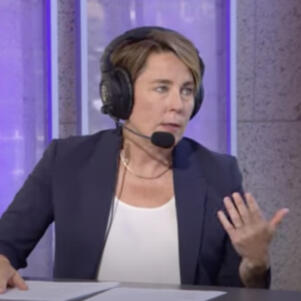MCAS 2.0 called for by Bay State ed chief Chester
By State House News Service | November 12, 2015, 14:01 EST

BOSTON – A “next-generation MCAS” is the route Massachusetts should take in choosing its new standardized student assessment program, Elementary and Secondary Education Commissioner Mitchell Chester announced Tuesday.
The new test would include items from both the MCAS and PARCC exams, along with questions specifically developed for Massachusetts, according to Chester’s recommendations.
The Board of Elementary and Secondary Education is scheduled to vote on Chester’s recommendation next week. Last month, Chester told the board he was considering an “MCAS 2.0” in a debate that had previously focused on whether the state should stick with its existing MCAS tests or adopt PARCC, an exam developed by a consortium of states to align with the Common Core curriculum standards.
The new test recommended by Chester, if approved by the board, would be given for the first time in the spring of 2017. Districts that administered PARCC this past spring would do so again next year, and other schools could continue with MCAS unless they elected to switch.
A “limited number of PARCC items” would be added to the MCAS tests to offer students the chance to familiarize themselves with the style of that test and to make statewide comparisons easier, according to the Department of Elementary and Secondary Education.
The commissioner also calls for the state to commit to computer-based state assessments by 2019 and to remain a member of the PARCC consortium.
Borrowing from the multi-state PARCC exam to build a better standardized test in Massachusetts has an unknown cost, Education Secretary James Peyser told the News Service on Friday.
In fiscal 2015, the state spent about $24 million on MCAS vendor Measured Progress, and paid Pearson $7.1 million for districts that chose to use PARCC, while paying PARCC Inc. an additional $565,000.
Peyser said he hoped developing a new test would cost about the same as running two tests.
“My hope is that it would actually end up not being all that much more expensive, and maybe not more expensive at all in the near-term than administering two assessments,” Peyser said.
Written by Katie Lannan










